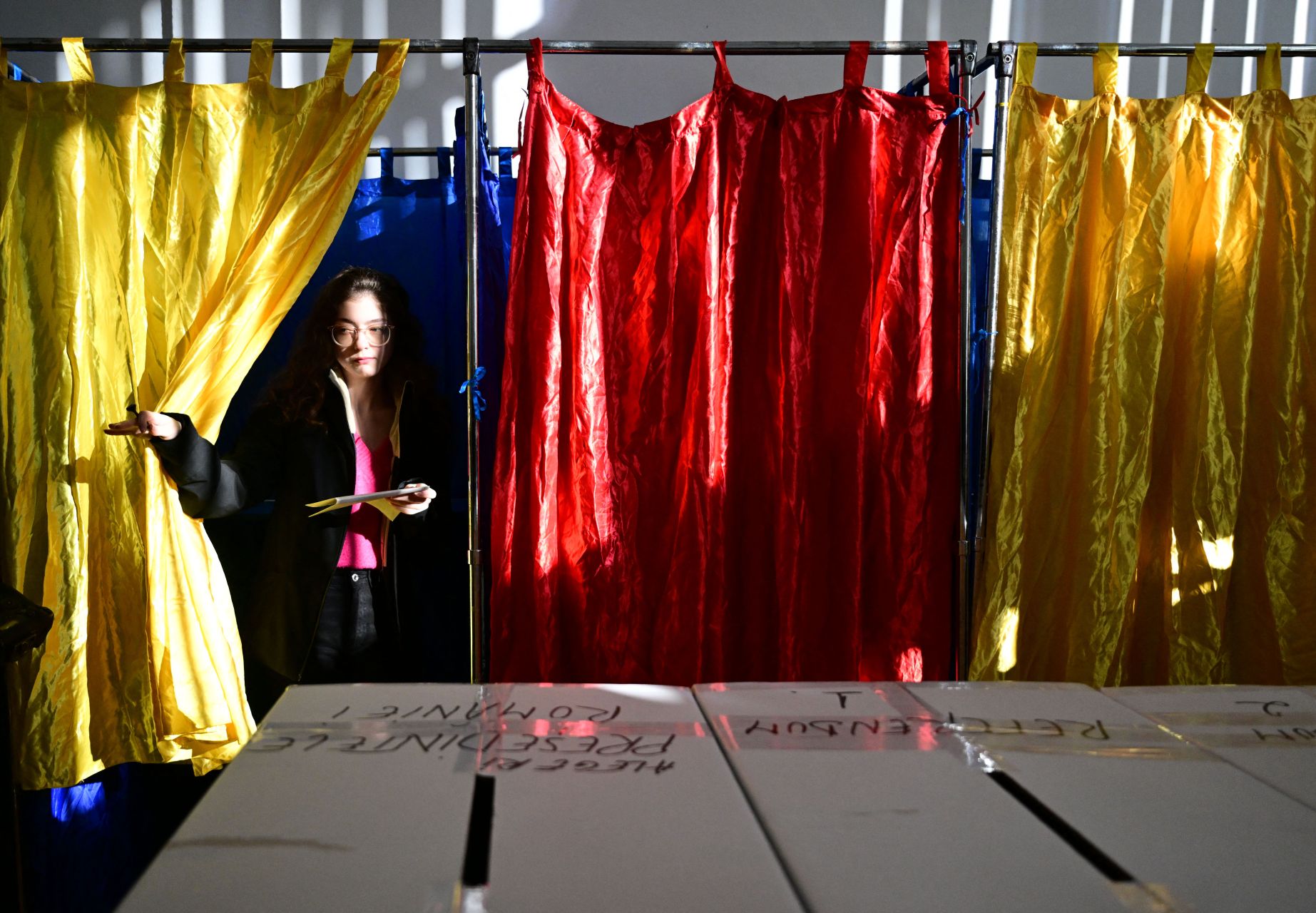- Home
- Middle East
- Romania's Top Court Scraps Presidential Election

A woman leaves the polling booth prior to vote for the presidential elections at a polling station in Bucharest on November 24, 2024. ©Daniel MIHAILESCU/AFP
Romania's constitutional court announced on Friday that it had annulled the presidential election following allegations of Russian interference, effectively cancelling the second-round run-off that had been due to take place this weekend.
Romanian authorities had cried foul after far-right outsider Calin Georgescu topped the first round of presidential elections on November 24, a surprise result in the EU and NATO member bordering Ukraine.
On Wednesday, the presidency declassified documents detailing a slew of allegations against Georgescu and Russia, including "massive" social media promotion and cyber-attacks.
The court said it had decided "to annul the entire electoral process for the election of the President of Romania... to ensure the correctness and legality of the electoral process".
It said the decision had been unanimous without giving further details.
"The government will set a new date for the election of the president of Romania," it added.
Georgescu, a former senior civil servant, had been due to face centrist mayor Elena Lasconi in Sunday's runoff.
'Only correct solution'
Fears had been rife that if Georgescu won, the country would join the EU's far-right bloc and undermine European unity against Russia.
Outgoing Prime Minister Marcel Ciolacu welcomed the court's decision in a post on Facebook. It was, he said "the only correct solution after the declassification of the documents... which show that the result of the Romanians' vote was blatantly distorted as a result of Russia's intervention".
The documents, drawn up for a security council meeting after the first round of voting, were published late Wednesday.
In them, the authorities said data had "revealed an aggressive promotional campaign, in violation of electoral legislation, and an exploitation of algorithms to increase the popularity of Calin Georgescu at an accelerated pace".
Last week they slammed "preferential treatment" of Georgescu by TikTok, which the social media platform has denied.
A company spokeswoman said on Thursday that TikTok had "no evidence that a coordinated campaign has taken place on our platform to date".
The European Commission announced on Thursday that it had stepped up its monitoring of TikTok in the context of Romania's elections.
A separate document by intelligence services stated that Romania "is perceived by Moscow's policy centers as an enemy state".
Romania is a "target for aggressive Russian hybrid actions, including cyberattacks and hacks and leaks and sabotage", it added.
'Negative impacts'
Washington has warned of the "serious negative impacts" if Romania, whose strategic importance has increased since Russia invaded Ukraine, turned away from the West.
Having praised Russian President Vladimir Putin in the past, Georgescu, 62, most recently has avoided answering questions about him being pro-Russian.
A critic of the EU and NATO, he says he does not want to leave either grouping but wants to put Romania "on the world map".
Like his idol US president-elect Donald Trump, he is opposed to military aid to Ukraine.
While the president's post is largely ceremonial, the head-of-state has moral authority and influence on Romania's foreign policy.
The president also designates the next prime minister, a key role especially since legislative elections last weekend returned a fragmented parliament.
The governing pro-European Social Democrats won the vote, but far-right parties made strong gains, together securing a third of the ballots.
Since the fall of Communism in 1989, Romania has never seen such a breakthrough by the far right, fuelled by mounting anger over soaring inflation and fears over Russia's war in neighbouring Ukraine.
Avec AFP
Comments